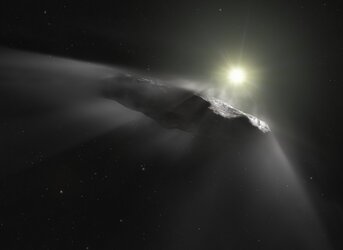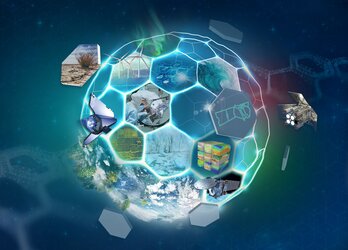European Astro Pi Challenge: Mission Space Lab winners!
ESA and the Raspberry Pi Foundation are delighted to announce the eleven winning teams of the European Astro Pi Challenge’s Mission Space Lab for 2018-2019!
After designing their own scientific investigations and having their programs run on board the International Space Station, teams of students and young people have been analysing the data that they received back from the ISS. To complete Phase 4 (Analyse) of the challenge, the teams were asked to submit a short scientific report to highlight their results and the conclusions from their experiments. The quality of the reports was truly impressive, showing a high level of scientific merit. Although it was a difficult task, the Astro Pi Jury have now selected the eleven winning teams, as well as 4 additional highly commended teams.
And the winning teams are…
Firewatchers from Post CERN HSSIP Group, Portugal, used a machine learning method on their images to identify areas that had recently suffered from wildfires.
Go, 3.141592…, Go! from IES Tomás Navarro Tomás, Spain, took pictures of the Yosemite and Lost River forests and analysed them to study the effects of global drought stress. They did this by using indexes of vegetation and moisture to assess whether forests are healthy and well-preserved.
Les Robotiseurs from Ecole Primaire Publique de Saint-André d'Embrun, France, investigated variations in Earth’s magnetic field between the North and South hemispheres, and between day and night.
TheHappy.Pi from I Liceum Ogólnokształcące im. Bolesława Krzywoustego w Słupsku, Poland, successfully processed their images to measure the relative chlorophyll concentrations of vegetation on Earth.

AstroRussell from Liceo Bertrand Russell, Italy, developed a clever image processing algorithm to classify images into sea, cloud, ice and land categories.
Les Puissants 2.0 from Lycee International de Londres Winston Churchill, United Kingdom, used the accelerometer sensor to study the motion of the ISS itself under conditions of normal flight and course corrections / reboost manoeuvres.
Torricelli from ITIS "E.Torricelli", Italy, recorded images and took measurements with sensors to calculate the orbital period and flight speed of the ISS, followed by the mass of the Earth using Newton’s universal law of gravitation.
ApplePi from I Liceum Ogólnokształcące im. Króla Stanisława Leszczyńskiego w Jaśle, Poland, compared their images from Astro Pi Izzy with images from 35 years ago and showed that coastlines have changed slightly due to erosion or human impact.
Spacethon from Saint Joseph La Salle Pruillé Le Chétif, France, tested their image-processing algorithm that could identify solid, liquid and gaseous features of exoplanets.
Stithians Rocket Code Club from Stithians CP School, United Kingdom, did an experiment comparing the temperature on board the ISS to the average temperature of the nearest country that the ISS was flying over.
Vytina Aerospace from Primary School of Vytina, Greece, recorded images of reservoirs and lakes on Earth to compare them with historical images, from the last 30 years, in order to investigate climate change.
The 11 winning teams were rewarded with a very special prize… a webinar with ESA astronaut Frank De Winne! Frank is currently the head of the European Astronaut Centre in Germany, where astronauts train for their missions to space. The webinar took place on 18 June and each team had the chance to ask Frank questions about his life as an astronaut.
Highly commended teams

Aguere Team from IES Marina Cebrián, Spain, investigated variations in Earth’s magnetic field due to solar activity and a particular disturbance due to a solar coronal hole.
Astroraga from Coderdojo Trento, Italy, measured the magnetic field to investigate whether astronauts can still use a compass, just like on Earth, to orient themselves on the ISS.
Betlemites from Escoles Betlem, Spain, recorded the temperature on the ISS to find out if the pattern of a convection cell is different in microgravity.
Rovel In The Space from Scuola secondaria I grado A.Rosmini ROVELLO PORRO(Como), Italy, tested their program that monitored the pressure and would warn astronauts.
The highly commended teams will receive a selection of goodies from ESA and the Raspberry Pi Foundation.
All the Mission Space Lab participants will receive their participation certificate in the coming weeks.
The winner’s webinar concludes the European Astro Pi Challenge 2018-2019 and ESA would like to congratulate all the teams that participated this year. A record-breaking number of more than 12500 people from all 22 ESA Member States, Canada, Slovenia and Malta took part in this year’s challenge across both Mission Space Lab and Mission Zero.
ESA and the Raspberry Pi Foundation would like to invite school teachers, students and young people to join the next edition of the challenge. Follow the updates on our website to make sure you see the new announcement and register for next year’s European Astro Pi Challenge!


Access the video














 Germany
Germany
 Austria
Austria
 Belgium
Belgium
 Denmark
Denmark
 Spain
Spain
 Estonia
Estonia
 Finland
Finland
 France
France
 Greece
Greece
 Hungary
Hungary
 Ireland
Ireland
 Italy
Italy
 Luxembourg
Luxembourg
 Norway
Norway
 The Netherlands
The Netherlands
 Poland
Poland
 Portugal
Portugal
 Czechia
Czechia
 Romania
Romania
 United Kingdom
United Kingdom
 Slovenia
Slovenia
 Sweden
Sweden
 Switzerland
Switzerland


























